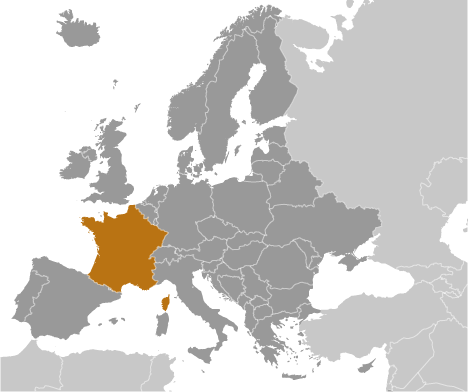HISTORICAL BACKGROUND
Article 14 of the 1789 Declaration of the Rights of Man called for access to information about the budget to be made freely available: "All the citizens have a right to decide, either personally or by their representatives, as to the necessity of the public contribution; to grant this freely; to know to what uses it is put."(1)
The Conseil d'Etat found in April 2002 that the right of administrative documents is a fundamental right under Article 34 of the Constitution.(2)
The 1978 Law on Access to Administrative Documents provides for a right to access by all persons to administrative documents held by public bodies.(3) These documents include "files, reports, studies, records, minutes, statistics, orders, instructions, ministerial circulars, memoranda or replies containing an interpretation of positive law or a description of administrative procedures, recommendations, forecasts and decisions originating from the State, territorial authorities, public institutions or from public or private-law organizations managing a public service." They can be in any form. Documents handed over are subject to copyright rules and cannot be reproduced for commercial purposes. Public bodies must respond in one month.
Proceedings of the parliamentary assemblies, recommendations issued by the Conseil d'État and administrative jurisdictions, documents of the State Audit Office, documents regarding the investigation of complaints referred to the Ombudsman of the Republic and documents prior to the drafting of the health-organization accreditation report are excluded from the definition of administrative documents. Documents that are "instrumental in an administrative decision until the latter has been taken" are not available until the decision is made.
There are also mandatory exemptions for documents that would harm the secrecy of the proceedings of the government and proper authorities coming under the executive power; national defense secrecy; the conduct of France's foreign policy; the State's security, public safety and security of individuals; the currency and public credit; the proper conduct of proceedings begun before jurisdictions or of operations preliminary to such proceedings, unless authorization is given by the authority concerned; actions by the proper services to detect tax and customs offences; or secrets protected by the law. Documents that would harm personal privacy, trade or manufacturing secrets, pass a value judgment on an individual, or show behavior of an individual can only be given to the person principally involved.
An ordinance was adopted in June 2005 to amend the 1978 law to implement the EU Directive on the re-use and commercial exploitation of public sector information (2003/98/EC).(4) It also made a number of other changes to the law including setting out the structure and composition of the Commission, requiring bodies to appoint a responsible person, and allowing access in electronic form.
The Commission d'accèss aux documents administratifs (CADA) is charged with oversight.(5) It can mediate disputes and issue recommendations but its decisions are not binding. There is no internal appeals under the law and all appeals are heard first by the CADA. It handled over 5,400 requests in 2004, up nearly 10 percent from the previous few years.(6) On average, around 50 percent of its recommendations are for the body to release the information that it is withholding (47.9 percent in 2004) and 10 percent against the requestor. In twenty percent of cases, the document is given before the CADA makes its decision. Privacy is listed as the most significant reason for upholding denials (around 50 percent of the time) followed by preparatory documents. The bodies follow the advice around 70 percent of the time and refuse to follow the advice in less than 10 percent of the cases. The CADA also issued opinions in 452 cases under a 2002 law that allows for individuals to access their medical records without needing it to be sent to a doctor first.(7)
A complaint must be decided by the CADA before it can be appealed to an administrative court. A 2004 review by the CADA found that only in 4 out of 155 cases did the courts have a different opinion than the Commission.
Generally, there seems to be low awareness of the law.(8) The number of requests for review by the CADA has increased slowly but substantially over the years (from under 1000 for the first few years to nearly 5,500 in 2004) indicating some increased use of the law. The CADA in its 2004 report admitted that it was difficult to make conclusions about the law based on solely the number of requests and hoped that the appointment of officials required in the new amendments would make it easier to determine the use of the law. The former head of the Commission Michèle Puybasset has said that the largest problems stem from the failure of bodies to recognize that the act applies to them or still have traditional notions of secrecy and excessive delays (80 percent of bodies do not meet the deadline).(9)
The COE GRECO anti-corruption committee gave France a positive review in 2004 for its transparency efforts:
The transparency requirement is long-standing, statutory and accompanied by adequate supervision. The access to administrative documents commission (CADA) plays an important part and makes sure that individuals are all entitled to see administrative documents, subject to any necessary statutory restrictions. The GET has received representative examples of CADA decisions that have helped to reduce corruption by encouraging transparency in government departments, other public bodies and private bodies receiving public funding or serving the public interest. The users' and administrative simplifications office (DUSA) and the agency for developing e-government (ADAE) are helping to introduce a more proactive information policy based on greater use of new information technologies.(10)
A 1998 law sets rules on classification of national security information.(11) The Commission consultative du secret de la défense nationale (CCSDN) gives advice on the declassification and release of national security information in court cases. The advice is published in the Official Journal.(12)
The 1978 Data Protection Act allows individuals to obtain and correct files that contain personal information about themselves from public and private bodies.(13) It is enforced by the Commission Nationale de l'Informatique et des Libertés (CNIL).(14)
In 2004, the Code du Patrimoine largely rescinded and replaced the 1979 Law on Archives. The Code makes files held in the archives public after thirty years. Files containing information relating to individuals' medical or personal life, international relations and national security can be kept closed for varying times up to 150 years.
A 2002 law allows for former adoptees and wards of the state to access their records and find out the names of their parents, relatives and their medical conditions.(15) It created a new commission, the Conseil national pour l'accès aux origines personnelles (CNAOP) to enforce the act. Prior to the formation of the CNAOP in August 2002, the CADA issued 132 opinions.
France signed the Aarhus Convention in June 1998 and ratified and implemented it in July 2002.(16) It included a declaration that "The French Government will see to the dissemination of relevant information for the protection of the environment while, at the same time, ensuring protection of industrial and commercial secrets, with reference to established legal practice applicable in France." The ECJ ruled in June 2003 that the French government had failed to adequately implement the 1990 directive.(17) In July 2005, the European Commission announced that it was taking legal action against France and six other countries for failing to implement the 2003 EU Directive on access to environmental information.(18)
2004 freedominfo.org Global Survey Results - France
Notes
1. http://www.yale.edu/lawweb/avalon/rightsof.htm
2. l'arret Ullmann du Conseil d'Etat du 29 avril 2002.
Loi no. 78-753 du 17 juillet 1978 de la liberté d'accès au documents administratifs; Loi no 79-587 du juillet 1979 relative à la motivation des actes administratifs et à l'amélioration des relations entre l'administration et le public. http://www.legifrance.gouv.fr/texteconsolide/PPEAV.htm English version (not updated) http://www.cada.fr/uk/center2.htm
Ordonnance n° 2005-650 du 6 juin 2005 relative à la liberté d'accès aux documents administratifs et à la réutilisation des informations publiques. http://admi.net/jo/20050607/JUSX0500084R.html
Homepage: http://www.cada.fr/
CADA, Rapport d'activité de l'année 2004.
Loi No. 2002-303 de 4 mars 2002 relative aux droits des maladies et a la qualité du system de la santé public.
Anina Johnson, You Don't Know what you've Got until it's Gone, Freedom of Information Review No 85, February 2000.
Michèle Puybasset, The French Approach. Paper prepared for the Bertelsmann Foundation's Freedom of Information project.
Second Evaluation Round Evaluation Report on France. Adopted by GRECO at its 21 st Plenary Meeting (Strasbourg, 29 November - 2 December 2004). Greco Eval II Rep (2004) 5E.
Loi no 98-567 du 8 juillet 1998 instituant une Commission consultative du secret de la défense nationale; See Rapport de la Commission consultative du secret de la défense nationale - Bilan 1998-2004.
For a copy of decisions, see http://www.reseauvoltaire.net/rubrique387.html
Loi du 6 janvier 1978 modifiée relative à l'informatique, aux fichiers et aux libertés après adoption en par le Sénat du projet de loi de transposition http://www.cnil.fr/fileadmin/documents/uk/78-17VA.pdf
Homepage: http://www.cnil.fr/
Loi no 2002-93 du 22 janvier 2002 relative à l'accès aux origines des personnes adoptées et pupilles de l'Etat. For information, see http://vosdroits.service-public.fr/ARBO/10050203-NXFAM749.html. Dossier législatif: http://www.senat.fr/dossierleg/pjl00-352.html
Ordonnance n° 2001-321 du 11 avril 2001 relative à la transposition de directives communautaires et à la mise en œuvre de certaines dispositions du droit communautaire dans le domaine de l'environnement. (JO du 14 avril 2001). http://aida.ineris.fr/textes/ordonnance/text8900.htm
Commission of the European Communities v French Republic, Case C-233/00. Decision of 26 June 2003. Available at http://www.curia.eu.int/
European Commission, Public access to environmental information:Commission takes legal action against seven Member States, 11 July 2005.





















